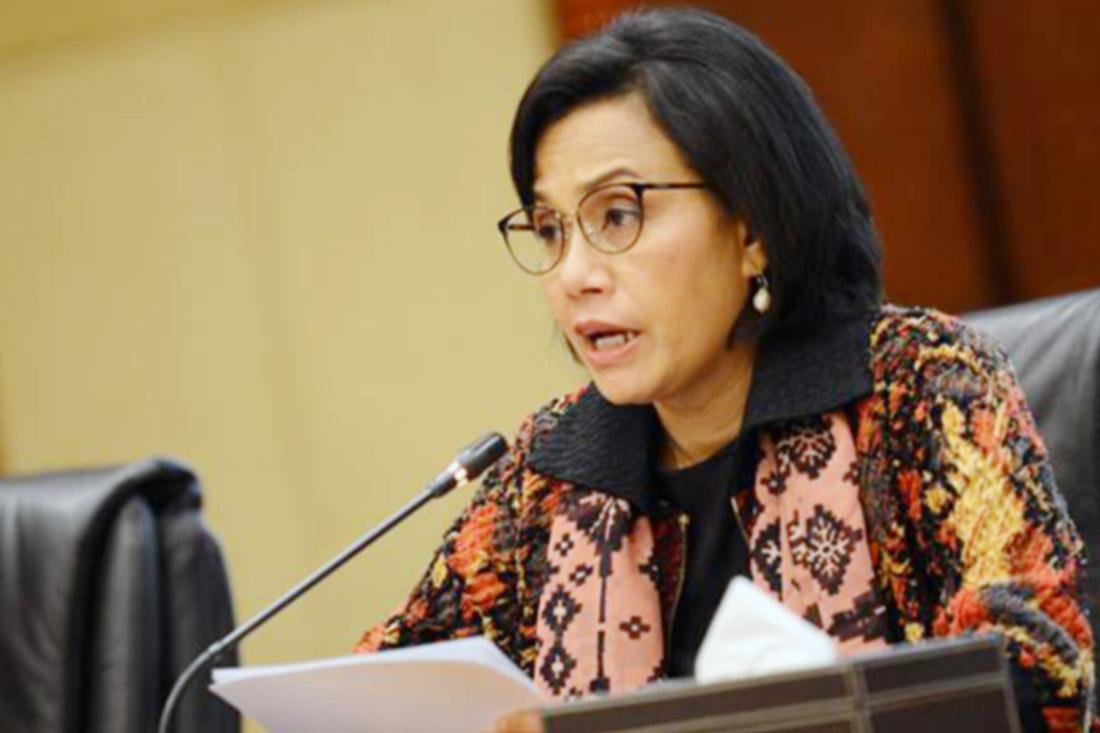News
Increase Cigarette Excise Tax, Minister of Finance Uses These Three Studies as References
Amru Aginta Sebayang • 11 Jan 2022
The Indonesian Minister of Finance Sri Mulyani has officially set an increase in excise tax rates by an average of 12.05% for the 2022 administrative year. (Image source: Antara)
Jakarta, 12 January 2022 - Tobacco Product Excise (CHT) is officially increased at around 2.5% to 14.4% or an average of 12.05% and a maximum of 4.5% for handmade cigarettes, as announced by the Minister of Finance, Sri Mulyani on January 1, 2022.
The aims of policy are to 1)reduce the smoking prevalence of children aged 10-18 years in 2024, (2) reduce cigarette production by around 200 million sticks, (3) avoid down trading (consumers switch to cheaper cigarettes), (4) prevent cigarette factories from getting more excise low, and (5) increase the potential for state revenue.
Excise taxes are imposed on goods with certain characteristics, such as its consumption needs to be controlled, its distribution needs to be monitored, and its use can have a negative impact on society and the environment. Thus, the increase of CHT this year needs to be appreciated as cigarettes greatly affect the economy and health. This policy is based on the findings of academics and community organizations through the various studies below:
- A research by CSSUI on tobacco consumption hinders human development and imposes economic and health costs.The Center for Social Security Universitas Indonesia (CSSUI) stated that children from families with active smokers are 5.5% more prone to stunting than children from families who do not. It is because smoking affects the nutritional condition of children through two stages. First, cigarette smoke is proven to interfere with the absorption of nutrients in children that affects their growth and development. Second, in terms of the cost of shopping for cigarettes, parent who smoke tend to reduce the cost of shopping for nutritious food, health costs, or education costs to buy cigarettes.This study, using data from the Indonesian Family Life Survey (IFLS) from 1997 to 2014, proves that parents' smoking behavior affects children's height and weight. Consumption of cigarettes by around 3.6% in 1997 jumped to 5.6% in 2014, while there was a significant decrease in the consumption of other essential needs. Meanwhile, children who live with non-smoking parents will grow 1.5 kg heavier and 0.34 cm taller.
- A survey by the National Committee on Tobacco Control (NCTC) about the increase in cigarette consumption during the pandemic has added to the economic burden.The survey by the NCTC tp 612 respondents in various regions shows that there was a tendency for spending on cigarettes to increase by 13.1% during the pandemic. The survey period is 15 May-15 June 2020 (three months after the declaration of the COVID-19 Emergency Status on 29 February 2020). Ironically, 77.14% or the majority of respondents who increased spending on cigarettes came from groups with an income of less than five million rupiah. 17.8% of this group earned between 2-5 million rupiah and another 9.8% earned less than 2 million rupiah.On the other hand, the majority of 50.2% of respondents admitted that the number of cigarettes consumed during the pandemic remained constant. Another 15.2% of respondents said the number of cigarettes during the pandemic had increased.As much as 69.77% of respondents who increase cigarette consumption came from the income group of less than 5 million rupiah. Meanwhile, 18.1% came from respondents earning between 2-5 million rupiah.The findings of this research break the perception that smoking behavior has decreased during the pandemic. Instead, smoking continues to add to the burden on the economy and society affected by the economic crisis during the pandemic.
- A research by CISDI (2021) on cigarette consumption that burdens health costs of IDR 17.9 – 27.7 trillion a year due to smoking-related diseases. Research findings from the Center for Indonesia's Strategic Development Initiatives (CISDI) stated that smoking habits create an economic burden on health in Indonesia reaching IDR 17.9 to 27.7 trillion in 2019.This study seeks to identify the costs of the deadly but preventable diseases caused by smoking. CISDI said that the majority of the burden of health economic costs comes from hospitalization and treatment costs that must be borne by the national health insurance (BPJS Kesehatan). Around 17.9 to 27.7 trillion rupiah is equivalent to 61.76% to 91.8% of the total JKN deficit in 2019. This research uses Basic Health Research data (RISKESDAS) (2018), National Social and Economic Survey or SUSENAS (2018-2019), and BPJS Kesehatan administrative data (2019).This finding at the same time refutes the view that tobacco products make a balanced financial contribution to the health sector through the mechanism of the Regional Cigarette Tax to the Tobacco Excise Revenue Sharing Fund (DBH/CHT), which is only IDR 7.4 trillion.
The hope is that in the future the average rate of increase in tobacco excise tax can be even higher to reduce all losses from smoking. At the same time, the government also needs to mitigate community groups affected by this policy, such as farmers or other groups involved in the cigarette production chain.
